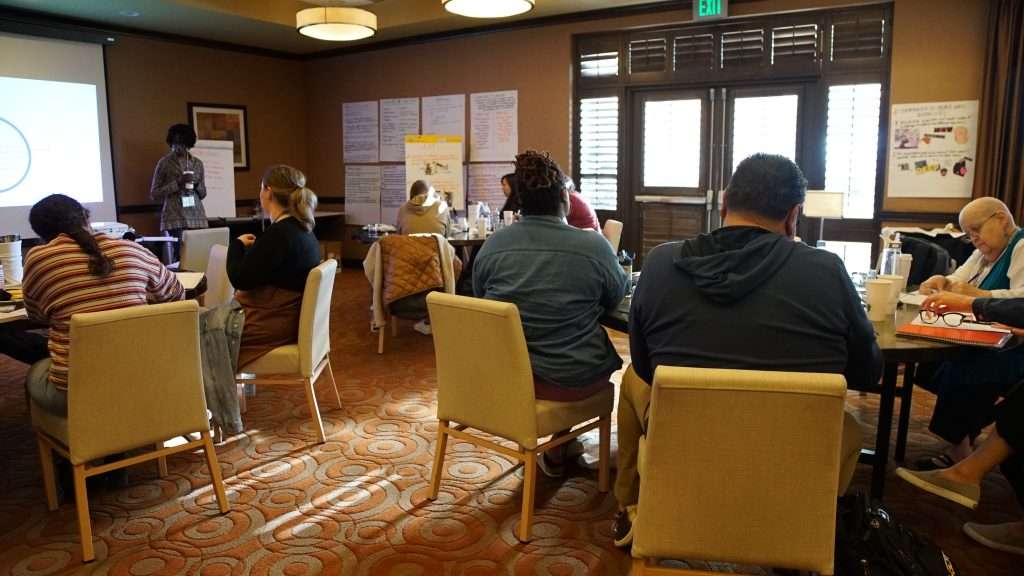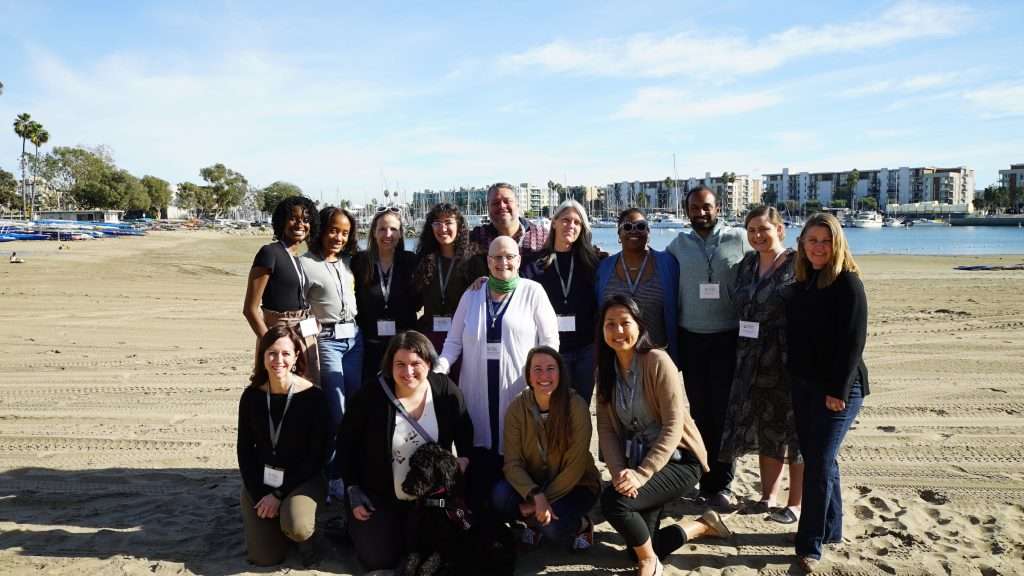Many organizations say they are committed to diversity, equity, and inclusion (DEI), but struggle to take action to create a workplace that embraces DEI. This month I’d like to spotlight one of our nonprofit clients and show how they took action – and how you can too.
I met Terri Wingham, Founder and CEO of A Fresh Chapter (AFC) in 2021. Over the last 10 years, she and her team have developed programming and a supportive community to help individuals heal from the emotional scars of cancer. While AFC’s services were deeply impactful to their existing participants, they sought to expand their reach to widen the racial and gender diversity of their participants. Terri wanted to cultivate deeper connections with communities of color, LGBTQ+ individuals, people of diverse gender identities, and people with disabilities.
We met and discussed her vision and her goals. We talked about what would be possible for cancer survivors across race, gender, sexual orientation, ability, and more to take part in AFC’s programming. And we talked about why greater diversity wasn’t yet a reality.
A recent study by Nonprofit HR revealed that while 52% of nonprofit organizations have a formal diversity statement, just 31% have a strategy to support it.
Nonprofit HR – 2019 Nonprofit Diversity Practices
Terri is in the 31%.
She wanted to act and reached out for support. Her organization recently launched an I.D.E.A. (Inclusion, Diversity, Equity, and Accessibility) Committee, and in the summer of 2021, they received training from The Project 2043 Institute. For many, the experience was eye-opening. After these initial sessions, we knew a more in-depth program could help AFC and other nonprofits act on their goals for DEI.
Many nonprofits have a small staff and a small budget. But this doesn’t mean they can’t be more inclusive, diverse, equitable, and accessible in their culture, operations, and services. What began as a goal to support AFC turned into a grant proposal with the potential to impact the greater nonprofit industry. We wanted to test a program that helps small nonprofits infuse I.D.E.A. throughout their organization. The Project 2043 Institute would lead a hybrid, interactive learning experience grounded in the Liberatory Consciousness Framework. This framework, developed by Dr. Barbara J. Love, informs our approach to DEI with the pillars of awareness, analysis, action, and allyship.

Photo Credit: A Fresh Chapter
This program would be available to all AFC staff and I.D.E.A. Committee volunteers, and AFC would serve as the case study. We pitched the idea and it was funded by two pharma industry giants – The Gilead Foundation and The Genentech Foundation. We were elated.
The virtual sessions launched in September 2022. In November, all participants met in person for two days. I.D.E.A. Committee members and AFC staff were informed, inspired, and challenged. They left with a framework for action.
Then, it was time to put the lessons to work. The AFC team ultimately decided to create a mini-training for future I.D.E.A. Committee members, to cultivate connections with organizations that serve people of color and the LGBTQ+ community, and to revisit their marketing. They are taking steps and turning I.D.E.A. into Action.
The Project 2043 Institute is incorporating the lessons learned into a cohort model program for nonprofit leaders. In this program, leaders will learn bite-sized steps they can take to create more inclusive, diverse, equitable, and accessible organizations.

Photo Credit: A Fresh Chapter
Our Takeaways
We learned many lessons from this pilot. If you are a nonprofit looking to take similar steps, here are a few takeaways:
- Aim High & Take Small Steps. Creating an organization or team that is more diverse, equitable, and inclusive takes time, trial, error, and effort. Even with a plan, an organization (and the individuals in it) still need to implement it. This takes time and effort. It takes a willingness to adjust and stay the course. This is why creating habits is so important. When we shift our internal culture, over time, we can see the impact of these efforts.
- Awareness is Key. Much of our work focused on becoming aware of things that are right in front of us, but for many reasons, we don’t see. For example, we don’t see how some communities may feel invisible as it relates to healthcare, and why. Or we don’t see how the most cited medical research marginalizes communities of color, LGBTQ+ individuals, and more. Developing our awareness can prompt us to ask more reflective questions, and take more meaningful actions. To be more inclusive, we must expand our awareness.
- I.D.E.A. is not a Single Person or Department’s Responsibility. Creating organizations that embrace I.D.E.A. is a team sport. Everyone in the organization contributes to whether that organization is inclusive, diverse, equitable, and accessible. It includes how we treat each other in meetings, the perspectives we seek when developing programs and services, and who is included in leadership. I.D.E.A. is about culture as much as it is about policy.
So, What’s Next?
With just 52% of nonprofits making a formal commitment to diversity, equity, and inclusion, and 31% acting on them, we are far from having a truly inclusive sector. In a nation with over 1 million nonprofit organizations – many with the goal of supporting historically marginalized communities – 31% is simply not enough.
Our nation is changing, and in 20 years, most people in the U.S. will identify as Black, Indigenous, and People of Color (BIPOC). Organizations must act, just like AFC, to become more inclusive, diverse, equitable, and accessible.
We’ve got to close the gap. If your organization hasn’t taken action, asking for support can be the next step.
For more information about our program for nonprofit leaders, please join our mailing list for the latest updates.

 Empathy is nice. We need more for DEI.
Empathy is nice. We need more for DEI.